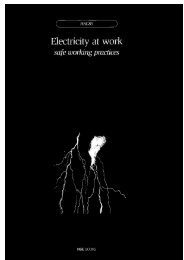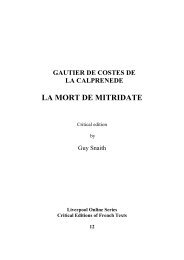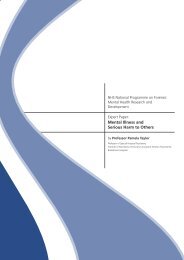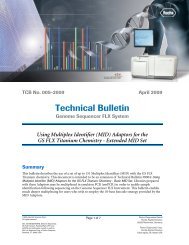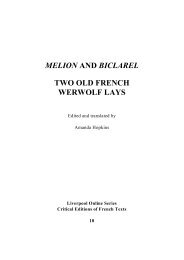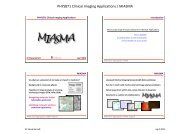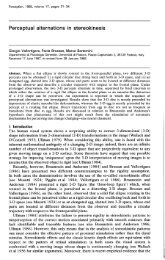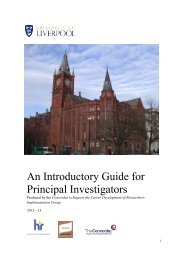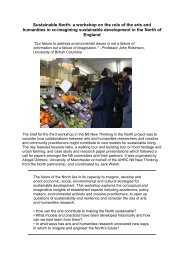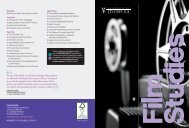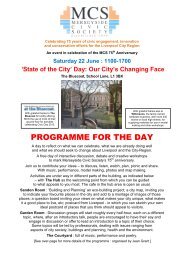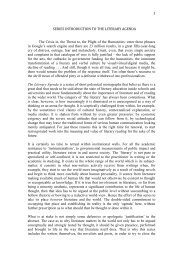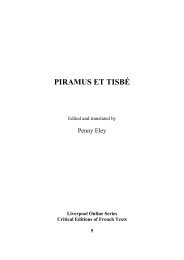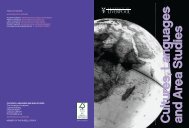Mental Well-being Impact Assessment of Projects funded
Mental Well-being Impact Assessment of Projects funded
Mental Well-being Impact Assessment of Projects funded
Create successful ePaper yourself
Turn your PDF publications into a flip-book with our unique Google optimized e-Paper software.
Other students at the school<br />
Teachers<br />
People using the classrooms that look out over the garden.<br />
MWIA report summaries<br />
MWIA workshops<br />
The MWIA toolkit presents evidence <strong>of</strong> how Control, Resilience and Community Assets,<br />
Participation, and Social Inclusion affect mental well-<strong>being</strong>. Participants at the first workshop were<br />
asked whether the Haven project had a positive or negative impact on aspects <strong>of</strong> these, and the<br />
importance <strong>of</strong> that impact. They were then asked to look at their top priorities in more detail, and<br />
suggest ways to improve them. The ones that they decided were <strong>of</strong> high importance and had a high<br />
impact were:<br />
MWIA Area Increasing Control Resilience Participation Inclusion<br />
Key<br />
Determinants<br />
Opportunities for<br />
self help<br />
Knowledge &<br />
ability to make<br />
healthy choices<br />
Skills & attributes<br />
Having your say /<br />
<strong>being</strong> heard<br />
Physical<br />
environment<br />
Emotional<br />
well-<strong>being</strong><br />
Learning &<br />
development<br />
Access to green<br />
space and shared<br />
public facilities<br />
Sense <strong>of</strong><br />
belonging<br />
Having a valued<br />
role<br />
Opportunities for<br />
social contact<br />
Social Networks Accessible &<br />
acceptable<br />
services<br />
Trust & safety<br />
Accepting & <strong>being</strong><br />
accepted<br />
Trust others<br />
Positive identities<br />
Practical support<br />
to enable<br />
inclusion<br />
In the second workshop, pupils looked at these aspects <strong>of</strong> the Haven project, and commented on<br />
whether they thought the group had a positive or negative effect on them. They then suggested<br />
ways to improve them.<br />
Appraising the evidence<br />
The researcher reviewed the published literature about the mental health <strong>of</strong> refugee and asylum<br />
seeker children, gardening, greenspace, and physical activity. She assessed whether it was<br />
consistent with the discussions in the workshops. The literature review confirmed the findings from<br />
the workshop. It found evidence that spending time in a natural environment, gardening, and<br />
physical activity are good for mental well-<strong>being</strong>. It highlighted the needs <strong>of</strong> refugee and asylum<br />
seeker children, and confirmed that the approach taken by the Haven project is well-suited to<br />
supporting the development and education <strong>of</strong> vulnerable pupils.<br />
Recommendations<br />
The following recommendations were developed to make the impact <strong>of</strong> the Haven project on mental<br />
well-<strong>being</strong> as positive as possible.<br />
Raise teachers’ awareness <strong>of</strong> the Haven project. Publicity <strong>of</strong> the Haven project, and in particular<br />
awareness <strong>of</strong> the project among school staff, was raised as an issue in both the staff workshop and<br />
the pupils’ workshop. Pupils felt that teachers sometimes thought they were lying to get out <strong>of</strong><br />
lessons. The teachers in the workshop were happy for pupils to leave lessons to go to the group,<br />
however the teachers who chose to participate in the workshop are likely to be more aware <strong>of</strong> the<br />
20



